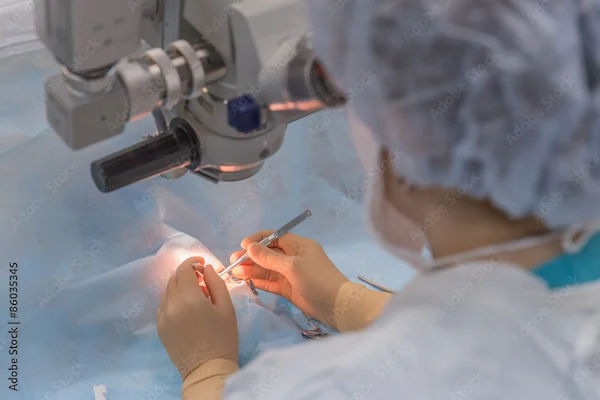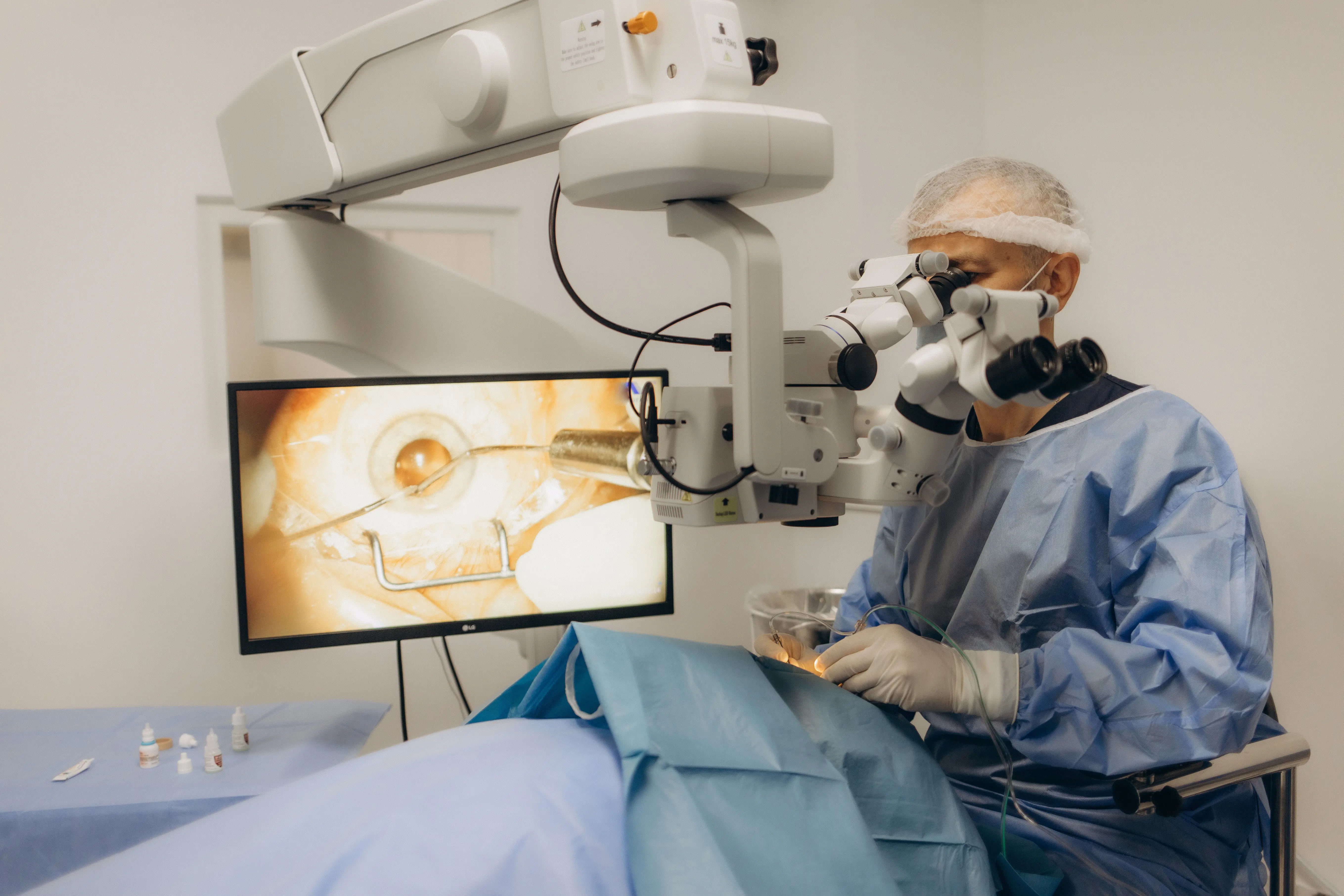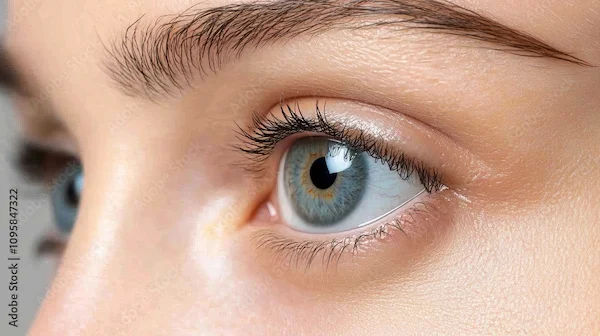Lifting Weight After Cataract Surgery
Wondering when you can lift weights after cataract surgery? Learn how long to wait, the risks of lifting too soon, and safe ways to stay active during recovery.

Written by Dr.Sonia Bhatt
Last updated on 13th Jan, 2026

Introduction
Cataract surgery is a common and highly successful procedure that helps restore clear vision by replacing the cloudy lens in your eye with an artificial one. While the surgery itself is quick and relatively painless, the recovery period requires some care to ensure the best possible outcome. One common concern many patients have is about lifting weights or engaging in strenuous activities after cataract surgery.
This guide explains why lifting weights can be risky soon after cataract surgery, how long you should wait before returning to your routine, safe ways to stay active during recovery, and tips to help you heal smoothly.
Why Should You Avoid Lifting Weights After Cataract Surgery?
After cataract surgery, your eye needs time to heal. The incision made during the procedure is small but still requires proper care to avoid complications. Lifting heavy weights or straining can increase pressure inside your eye, which may lead to:
1. Increased Eye Pressure – Straining while lifting weights can raise intraocular pressure (IOP), which may interfere with healing.
2. Risk of Bleeding or Swelling – Excessive force can cause stress on the delicate eye tissues.
3. Dislodging the New Lens – In rare cases, heavy exertion could affect the position of the artificial lens.
4. Delayed Healing – Overexertion may slow down recovery and increase discomfort.
Consult Top Specialists for Personalised Health Advice
How Long Should You Wait Before Lifting Weights?
Your ophthalmologist will give you personalised advice, but generally:
First 1-2 Weeks – Avoid lifting anything heavier than about 5-7 kg. This includes groceries, children, or gym weights.
2-4 Weeks – Light activities are usually okay, but avoid heavy weightlifting or intense workouts.
After 4-6 Weeks – Most patients can gradually return to normal lifting routines, but always check with your doctor first.
If you’ve had complications or additional eye conditions, your doctor may recommend a longer recovery period.
Safe Ways to Stay Active During Recovery
Just because you can’t lift heavy weights doesn’t mean you have to stay completely inactive. Here are some safe alternatives:
Walking – A great way to stay active without straining your eyes.
Light Stretching or Yoga (without inversions) – Gentle movements help maintain flexibility.
Low-Impact Exercises – Stationary cycling or light resistance bands can be good options.
Breathing Exercises – Helps reduce stress without physical strain.
Avoid:
Bending over suddenly can increase eye pressure
Rubbing your eyes can cause irritation or infection
Swimming or hot tubs increase risk of infection in the early stages
Tips for a Smooth Recovery
1. Follow Your Doctor’s Instructions – Use prescribed eye drops and attend follow-up visits.
2. Wear Protective Eyewear – Your doctor may recommend a shield at night to prevent accidental rubbing.
3. Stay Hydrated & Eat Nutritious Foods – A healthy diet supports healing.
4. Avoid Dust & Wind – Protect your eyes from irritants.
5. Listen to Your Body – If something feels uncomfortable, stop and rest.
When to Call Your Doctor
While complications are rare, contact your eye specialist if you experience:
Sudden vision changes
Severe pain or redness
Flashes of light or floating spots
Nausea or vomiting, could indicate high eye pressure
Final Thoughts
Recovering from cataract surgery is usually quick, but taking precautions with physical activities—especially weightlifting—will help ensure a smooth healing process. Always follow your doctor’s advice and ease back into your routine gradually.
If you have any concerns or need personalised guidance, you can consult an eye specialist on Apollo 24|7 for expert advice.
Consult Top Eye Specialists
Consult Top Specialists for Personalised Health Advice
Dr. Padmini S
Ophthalmologist
4 Years • MBBS,MS
Bengaluru
Apollo Medical Center, Marathahalli, Bengaluru

Dr. Karan Paswan
Ophthalmologist
7 Years • MBBS,MS (Ophthalmology)
Kolkata
VDC Clinic, Kolkata
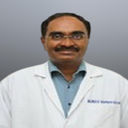
Dr. K Sreekumar Reddy
Ophthalmologist
26 Years • MBBS MD (Ophthalmology) EGESTOLP
Hyderabad
Apollo Hospitals Jubilee Hills, Hyderabad
(50+ Patients)
Dr Kanse Vaibhav
Ophthalmologist
10 Years • MBBS, DO, MS, DNB
Pune
Apollo Clinic, Nigdi, Pune
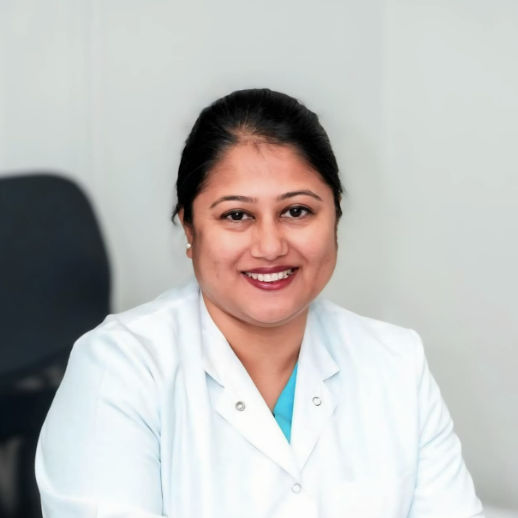
Dr. Zennat Tajmin Shah
Ophthalmologist
24 Years • MBBS,DNB (Ophthalmology)
Kolkata
Titanium Eye Care, Kolkata
Consult Top Eye Specialists
Dr. Padmini S
Ophthalmologist
4 Years • MBBS,MS
Bengaluru
Apollo Medical Center, Marathahalli, Bengaluru

Dr. Karan Paswan
Ophthalmologist
7 Years • MBBS,MS (Ophthalmology)
Kolkata
VDC Clinic, Kolkata

Dr. K Sreekumar Reddy
Ophthalmologist
26 Years • MBBS MD (Ophthalmology) EGESTOLP
Hyderabad
Apollo Hospitals Jubilee Hills, Hyderabad
(50+ Patients)
Dr Kanse Vaibhav
Ophthalmologist
10 Years • MBBS, DO, MS, DNB
Pune
Apollo Clinic, Nigdi, Pune

Dr. Zennat Tajmin Shah
Ophthalmologist
24 Years • MBBS,DNB (Ophthalmology)
Kolkata
Titanium Eye Care, Kolkata
